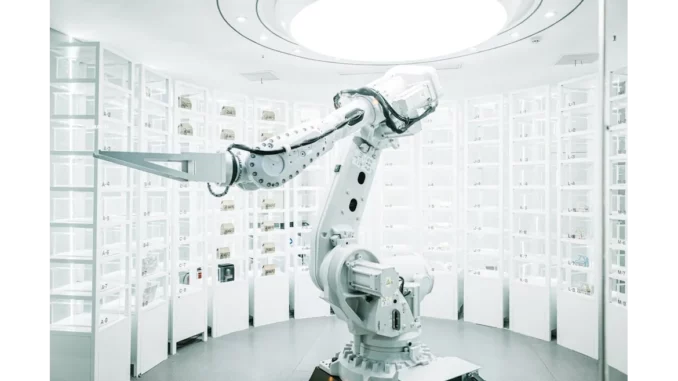
Summary
MinIO Launches AIStor: Revolutionising Data Handling for Generative AI
MinIO has unveiled AIStor, a novel solution poised to revolutionise how generative AI (GenAI) workloads are managed. Sarah Patel, Senior Systems Architect at MinIO, emphasised AIStor’s potential, stating, “We’ve pushed our Enterprise Object Store software to new heights to meet GenAI demands.” The solution promises optimised data transfer speeds and advanced data interaction capabilities, setting a new standard for AI infrastructure.
Main Article
AIStor: A Game-Changer in AI Workloads
In a rapidly advancing technological landscape, MinIO’s AIStor emerges as a pivotal development for handling Generative AI (GenAI) workloads. GenAI, which necessitates the processing of vast datasets at rapid speeds, is often bottlenecked by traditional data transfer methods. Sarah Patel, Senior Systems Architect at MinIO, explained, “The need for speed in data transfer to GPU servers is crucial. These servers are often large-scale farms, and any delay can lead to significant idle times, which is inefficient and costly.”
Innovative Solutions for Modern Challenges
AIStor addresses these challenges through several innovative features. Central to its design is the utilisation of S3 over RDMA (Remote Direct Memory Access), which aims to circumvent the bottlenecks inherent in TCP/IP networking. Patel described this as opening a “freeway for data,” allowing for high-speed transfers devoid of the usual obstacles. “RDMA’s ability to provide low-latency and high-throughput data transfers means that our clients can keep their GPU compute layers fully utilised,” Patel noted, drawing parallels to Nvidia’s GPUDirect but specifically for object storage.
Beyond this, AIStor introduces the revolutionary promptObject API, a tool designed to transform data interaction. “It allows users to interact with unstructured data as if conversing with a large language model,” Patel explained, underscoring its potential impact. By enabling queries such as identifying abnormalities in stored MRI scans, AIStor shifts the paradigm from mere data storage to active data engagement.
Securing Data with AIStor
Data security is another pillar of AIStor’s design. With integration into private AIHub repositories, the solution ensures AI models and datasets are managed securely without sacrificing performance or accessibility. Patel highlighted the importance of this feature, stating, “We understand the sensitivity of AI models and datasets. With AIStor, companies can manage these resources in private, secure environments.”
Further enhancing its utility is the redesigned Global Console, which Patel described as “a one-stop shop for managing complex data infrastructures.” This, coupled with a new Kubernetes operator, simplifies the orchestration of large-scale deployments, thus streamlining data management processes.
Industry Feedback and Future Potential
The reception from industry partners has been overwhelmingly positive. Companies like AMD have deployed AIStor for their big data platforms, reporting significant improvements in performance and scalability. As Patel reflected on AIStor’s broader implications, she noted, “It’s about opening new doors for AI application development—doors that were previously closed due to technical limitations.”
Detailed Analysis
Connecting the Dots: AIStor’s Role in Broader AI Trends
AIStor’s release aligns with the growing demand for efficient data handling solutions in the AI sector. As AI models become increasingly complex, the need for rapid data processing and secure data management becomes paramount. AIStor addresses these needs by providing a robust infrastructure that supports the high-speed, high-volume data requirements of GenAI applications.
The introduction of AIStor also reflects a broader trend towards enhancing AI accessibility. By streamlining data interaction and management processes, AIStor reduces the technical barriers traditionally associated with AI development, potentially accelerating innovation across industries.
Further Development
Looking Ahead: The Future Impact of AIStor
As AIStor begins to make its mark, further developments are anticipated. MinIO is likely to continue refining AIStor’s features, potentially expanding its capabilities to accommodate emerging AI technologies. Additionally, as more companies adopt AIStor, further insights into its performance and impact on AI infrastructure are expected to emerge.
For those keen on staying informed about AIStor’s journey and its implications for the AI industry, continued coverage will provide valuable insights into this evolving narrative.

